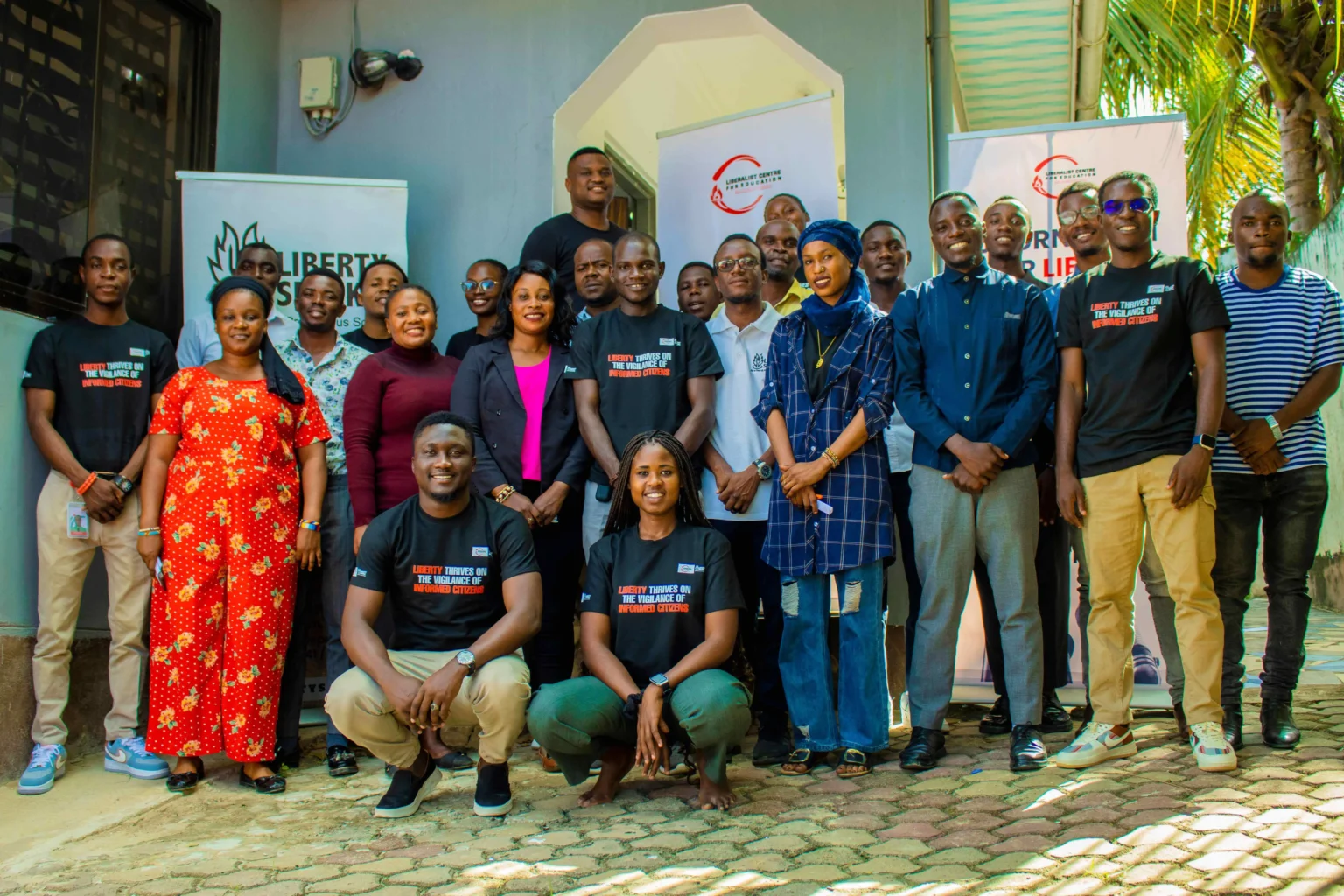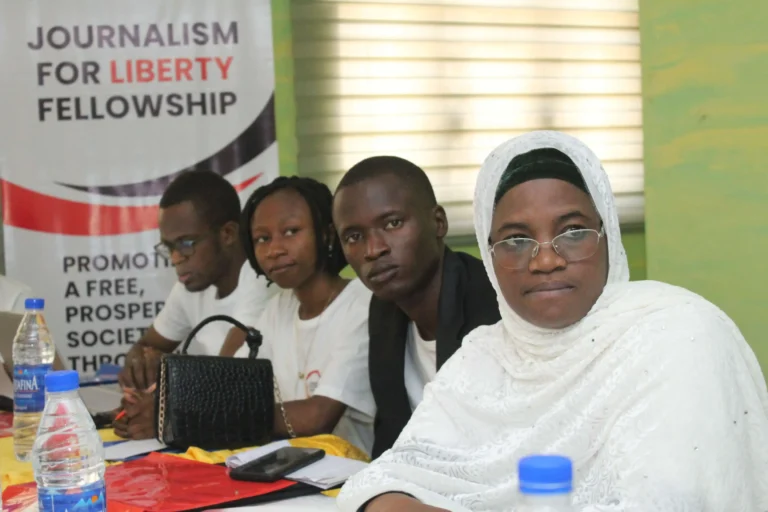Before 2023, Biliyaminu Manne had never heard of pro-freedom reporting. Six months into the Journalism for Liberty Fellowship, the young freelance journalist proudly identifies himself as a pro-freedom reporter.
“Even my journalistic knowledge was not in-depth, but during and after the fellowship, I had a pleasant moment to learn about journalism and pro-freedom reporting,” Manne told Media Career, reflecting on the fellowship’s impact on his career. He credited the opportunity as the foundation of his journalism journey.
“I can say it’s the fellowship that attracted several subsequent fellowship opportunities that I was selected for, such as the African Liberty Writing Fellowship and the Prime Progress Religion for Change Fellowship,” he said.
Manne’s journalism journey began during his undergraduate studies at Usmanu Danfodiyo University, Sokoto. As a Public Administration student, he took a course on Administrative Law, which introduced him to fundamental human rights enshrined in the Nigerian constitution, the principle of the rule of law, and labour laws. These concepts aligned with Manne’s passion for advocacy, liberty, and social accountability.
Seeking to expand his knowledge of the relationship between liberty and journalism, the young journalist applied for the second cohort of the Journalism for Liberty Fellowship in 2023.
“I got selected, and at the time, I didn’t know it would change the way I see the role of journalism and I didn’t know it would change my life. The fellowship improved my journalism knowledge and sharpened my communication skills, better equipping me to become an advocate of liberty,” he added.
The Journalism for Liberty Fellowship
Launched in 2022, the Journalism for Liberty Fellowship is an annual flagship programme of the Liberalist Centre, a Nigerian-based pro-freedom think-tank promoting liberty and prosperity in Africa. The fellowship is open to mid-career journalists and media professionals across Africa who have a strong interest in individual freedom, free markets, and limited government.
After an intensive two-day training featuring virtual and in-person sessions, successful participants become regular contributors to the Centre’s online magazine, The Liberalist. The training covers topics including the art of pro-freedom reporting, principles and values of liberty, and journalistic storytelling, among others. For six months, fellows participate in a series of training virtually facilitated by leading journalists and pro-freedom professionals.
During the fellowship, participants produce investigative stories, in-depth features, and engaging op-ed articles that highlight the adverse effects of excessive government power and the prospects of individual liberty.

With support from Atlas Network and African Students For Liberty, the Liberalist Centre expanded the fellowship beyond Nigeria, introducing the program in Tanzania last year.
“Our motivation for introducing the fellowship stems from our mission: promoting liberty and prosperity through media, research and advocacy,” said Eric Mobu, the Centre’s Programme Manager. “We believe we can achieve this by organising a series of training for journalists who later become advocates of liberty.”
The Liberalist Centre envisions a society of free and flourishing individuals. To achieve this, it advocates for principles that promote open borders, continental and inter-continental free trade, low taxes, good governance, and an independent judiciary that upholds the rule of law. Since 2022, the Journalism for Liberty Fellowship has trained over 200 young journalists across Africa.
“Right from the first cohort, we have seen young journalists grow after learning some tenets of pro-freedom reporting; we have seen them rise in their career,” Mobu said.
After completing the fellowship, Oluwaferanmi Bello, a participant in the third cohort, said he discovered journalism is more than just writing news reports or even investigative reports. According to him, a media enthusiast must practice journalism with a purpose.
“For me, I discovered journalism can be used ethically as an advocacy. And I am using it to advocate for liberty, development, and respect for human rights,” Bello said.
Bello revealed how the fellowship exposed him to networking opportunities and mentorship, and to educational materials that opened his eyes to ideas he could not have gotten anywhere else. “I got access to resources like I, Pencil by Leonard Read, Seven Principles of Writing in Defense of Liberty by John Hersey and the Liberty 102 Digital Courses on African Students for Liberty.”

The Birth of Pro-freedom Journalism
With its Journalism for Liberty project, the Liberalist Centre established a unique approach to journalism, stretching beyond conventional reporting. Its fellowship and online magazine, The Liberalist, use in-depth analyses, feature stories, and investigations, to carve a distinct journalism niche, distinguishing itself as a hub of pro-freedom ideas.
Reminiscing about his time in the fellowship, Usman Yakub, a fellow in the third cohort, said the most beneficial resources to him were the lessons about the understanding of the economy and the principles of a free market. This inspired his articles on the Nigerian minimum wage published on BusinessDay and his investigation on the food items hoarders published on the Foundation for Investigative Journalism (FIJ).
Each fellow’s experience appears unique. For Isiaq Ibrahim, the fellowship shaped his writing skills with the rigorous editing process and detailed feedback he received from the editor. “It also taught me how to effectively pitch a story for funding,” he said.
READ OTHER FOCUS REPORTS:
FOCUS: HumAngle’s impactful innovative storytelling strides

